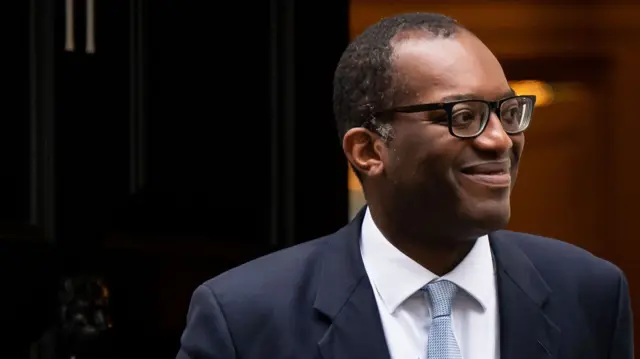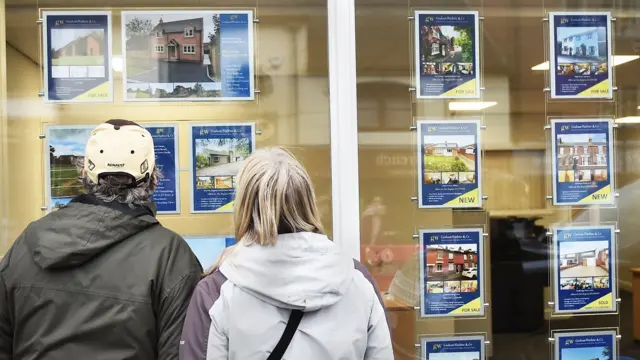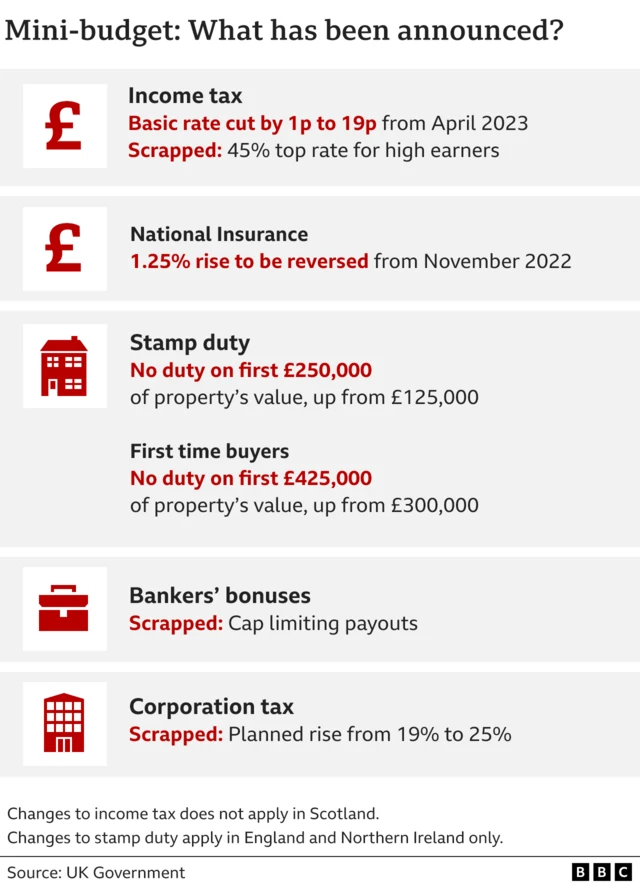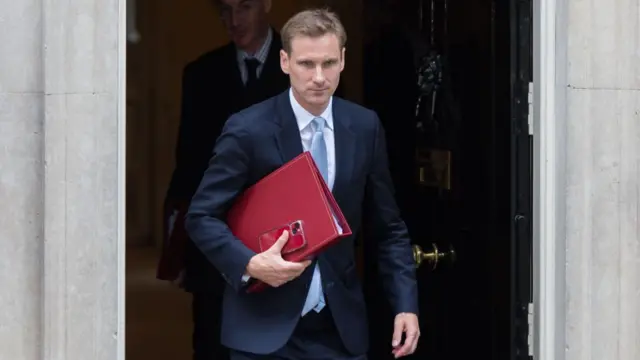Who benefits from stamp duty changes?published at 14:30 BST 23 September 2022
 Robert Cuffe
Robert Cuffe
Head of statistics
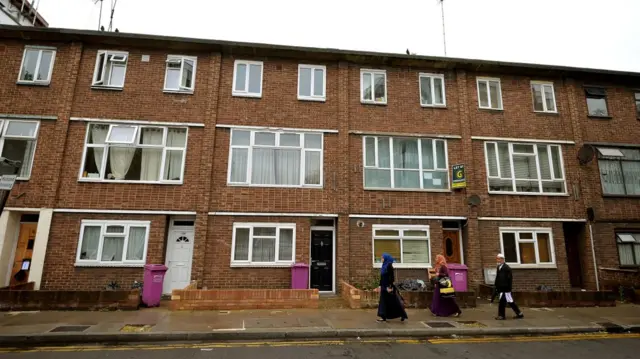 Image source, PA Media
Image source, PA MediaThe chancellor has permanently and immediately cut stamp duty tax in England and Northern Ireland for some home buyers.
First-time buyers of above-average homes see the biggest benefits.
And people buying homes that cost less than £250,000 now don’t pay stamp duty.
That will comfortably buy you an average terraced home in most places in England outside the South East. Raising the threshold to this level saves everyone who buys a house worth this much £2,500 (except first-time buyers).
First-time buyers can spend even more - £425,000, roughly an average flat in London - before they have to pay stamp duty. That’s a saving of £6,250 compared to the old rules.
Spend £620,000 - which might get you a detached home in somewhere like Collingham in Leeds - and a first-time buyer will pay £10,000. That’s less than half of what they would have paid a few days ago.
But above that level, first-time buyers pay the same as everyone else.
But remember - stamp duty rates are three percentage points higher for second homes, and that hasn’t changed.
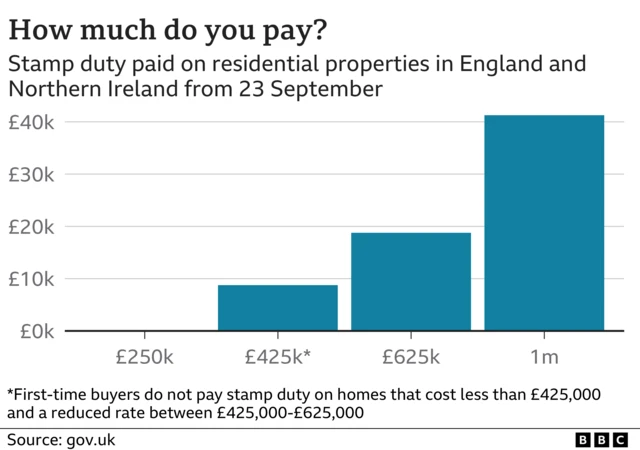 Image source, .
Image source, .
